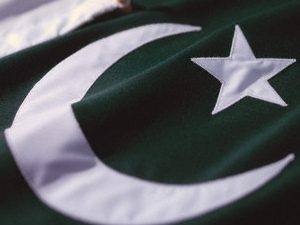There is no dearth of admiration for the armed forces in Pakistan. From rescuing victims of natural disasters and plane crashes to saving stranded mountaineers from frozen peaks and donating their share of the COVID-19 jabs to speed up the country’s anti-coronavirus vaccination drive, the armed forces are revered for their courage and the extraordinary sacrifices made while protecting Pakistan’s sovereignty.
But in a perfect world, no one is above criticism. More so a powerful security establishment in a country that has repeatedly seen military interventions, including three decades of dictatorships.
Lately, the armed forces have faced increasing scrutiny over alleged interference in civilian governance matters, the most recent episode involving intelligence officials holding the provincial police chief hostage in Karachi.
In a bid to control the narrative, a member of parliament from the Pakistan Tehreek-e-Insaf (PTI) introduced a bill that seeks to criminalize criticism of the armed forces. Endorsed by the interior ministry, the bill proposes a two-year jail term, 500,000 Pakistani rupees (about $3,226) in fines, or both to those who “intentionally ridicule, bring into disrepute or defame the armed forces of Pakistan or a member thereof.”
In April, the bill was given the go-ahead by a parliamentary panel. It is yet to be presented before the National Assembly for a vote.
Since the bill proposes an amendment to the general corpus of Pakistan’s penal laws, it applies not just to citizens but entities including but not limited to the media. Those who oppose the bill argue that it violates Article 19 of the Constitution of Pakistan that grants the right to freedom of speech and expression and freedom of the press.
In the last two and a half years since Prime Minister Imran Khan came to power, Pakistan’s ranking on the Reporters Without Borders (RSF) Press Freedom Index has fallen from 139 in 2018 to 142 in 2019 and 145 last year.
While muzzling free speech is not a novel concept in Pakistan, it is unprecedented for a democratically elected government to impose such a restriction, sparking more claims of it being a “hybrid” regime, through its de facto power-sharing with the military.
Despite periodic suppression of press freedom and dissent, the military is rarely, if ever, criticized in mainstream media. Historically, newsrooms across the country have had editorial policies in place on covering topics deemed sensitive, enabling editors to master the art of using oblique terms to veil criticism.
As obstructive as the bill may appear to be for press freedom, it would barely affect the workings of a newsroom. It would, however, bring the unspoken red lines created by editorial guidelines out into the open through the implementation of a law.
With this amendment, Khan’s government will effectively legalize self-censorship – and not just in newsrooms.
Under the current dispensation in Islamabad and the restrictions it has imposed, interviews of opposition leaders have been taken off air mid-broadcast, journalists and columnists have been regularly censored, while the financial squeeze has forced several news organizations to close down or downsize, resulting in many media professionals losing their jobs.
In such a situation, social media has emerged as a parallel news hub for information dump and conversations discounted by the mainstream media.
In a country where laws are routinely misused, the new bill threatens to constrain political discourse on social media and prevent the public, opposition politicians, and rights groups from deliberating over the military leadership’s allegedly acting beyond its remit.
A conversation on the armed forces’ activities in no way undermines its stature, but by blocking free speech, the government has politicized the issue and brought the military leadership into the global limelight.
The bill has been strongly condemned by sitting ministers belonging to Khan’s party as well as members of the opposition parties. But if history is anything to go by, politicians in Pakistan are not known for staying the course.

































